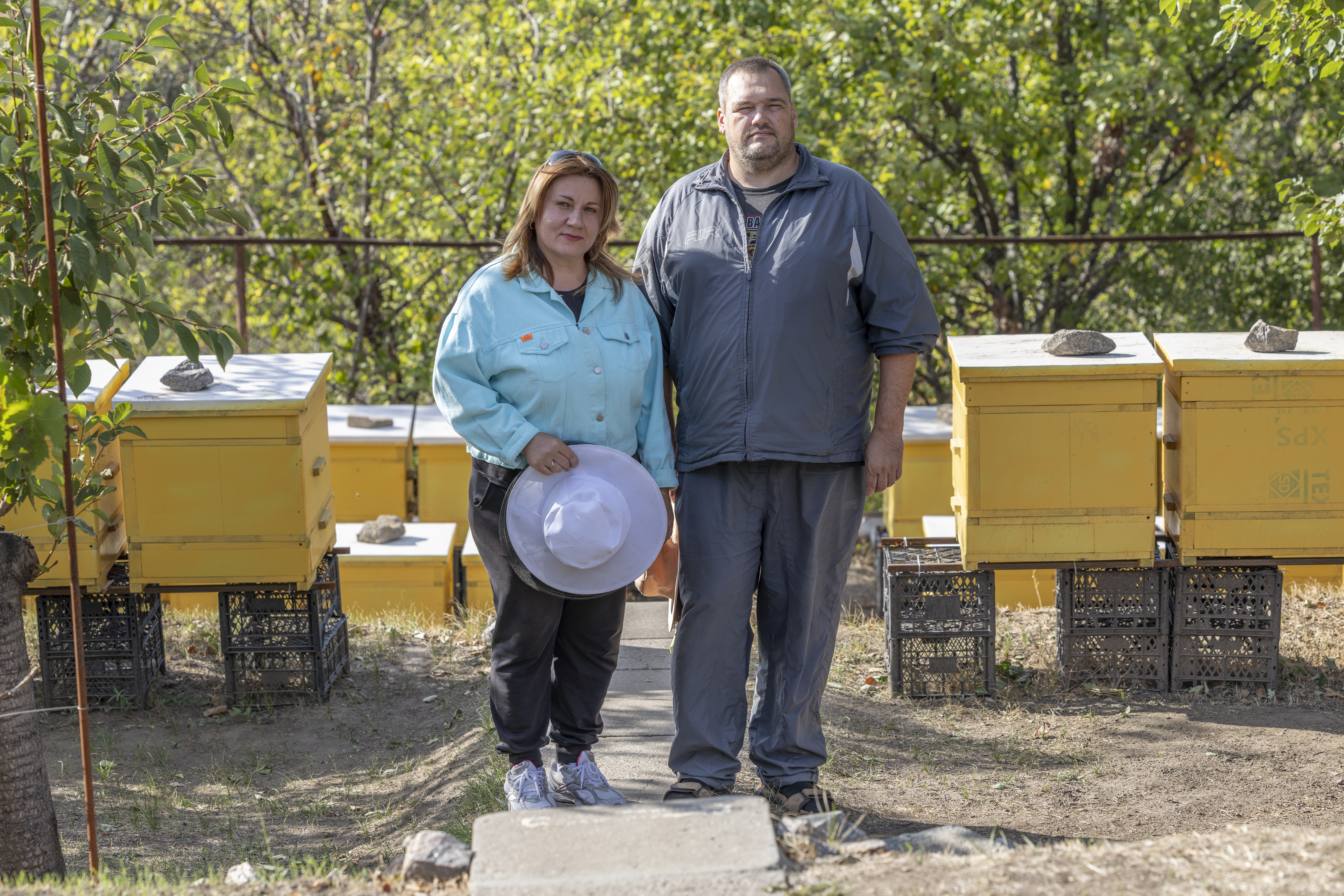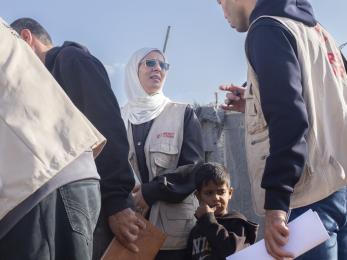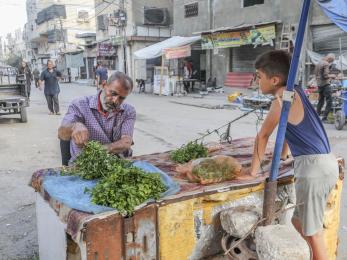The facts: Venezuela’s humanitarian crisis
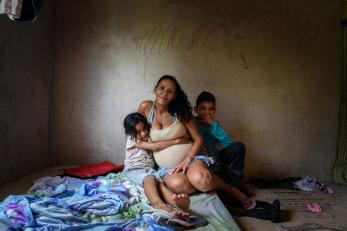
For several years Venezuela — once the richest country in South America — has been hurtling toward economic, social and institutional collapse, spurring a regional humanitarian crisis and mass migration.
Families are struggling to survive inside Venezuela, while others are making desperate journeys to leave their home country entirely.
The regional humanitarian crisis is now the worst in the Western Hemisphere, with more than 4 million refugees and migrants. That's about 10 per cent of the country's total population. Four out of every 10 people still in Venezuela want to leave.
The UN estimates there will be 5.3 million Venezuelan refugees and migrants by the end of 2019, rivaling the scale of the Syrian refugee crisis. By 2020, there will be 8 million Venezuelan refugees, making this crisis the largest refugee crisis in the world.
You can help. Learn more about the ongoing crisis in Venezuela and the region and join us in supporting the families who have fled.
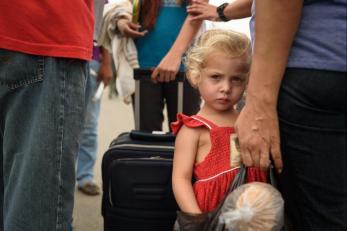
The statistics in Venezuela are startling: Nearly 90 per cent of the country’s population lives below the poverty line and more than half of families are unable to meet basic food needs. But what happened to cause these issues?
Venezuelans are facing malnutrition
Because of the economic collapse, Venezuelans are struggling to buy enough food to feed themselves and their families.
In fact, the situation in Venezuela is so dire that the Secretary General of the Organization of American States said last year that newborns in Syria have a better chance of survival than those born in Venezuela today.
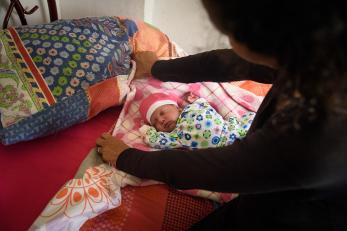
There are few health services left
Medical facilities in Venezuela are breaking down and losing their electricity at the same time that the cost of medications has become astronomical. There is a shortage of around 85 per cent of all medicines in the country.
Meanwhile, 13,000 doctors have left Venezuela in the past four years.
Without access to proper medical care, people have become more vulnerable to treatable and communicable diseases like tuberculosis and malaria. As noted in a recent Human Rights Watch report, the World Health Organization (WHO) has reported that malaria cases in Venezuela have consistently increased in recent years — from fewer than 36,000 in 2009 to more than 414,000 in 2017.
Society in Venezuela is breaking down
Jobs in Venezuela have all but disappeared, and with violence on the rise and reliable access to food, healthcare and medicine deteriorating, more than 3 million Venezuelans have left since 2015.
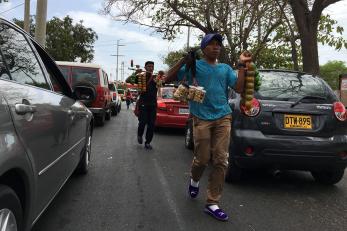
Venezuela has one of the highest crime rates in the world. In 2017, more than 73 Venezuelans died a violent death every day.
Inflation in Venezuela has skyrocketed
Inflation in Venezuela has grown exponentially in the past few years. The high inflation has been devastating for Venezuelans, whose salaries often are not enough to pay for one meal a day. Few people can afford anything else.
Inflation is projected to grow to 10,000,000 percent this year, up from 112 percent in 2015.
Venezuela holds the world's largest supply of crude oil — but it’s not providing the income that it used to. The price of oil fell from $100 a barrel in 2014 to $26 a barrel in 2016. Now barrels are around $50 each, which means Venezuela’s main source of income has been cut in half.
Where are Venezuelans fleeing to?
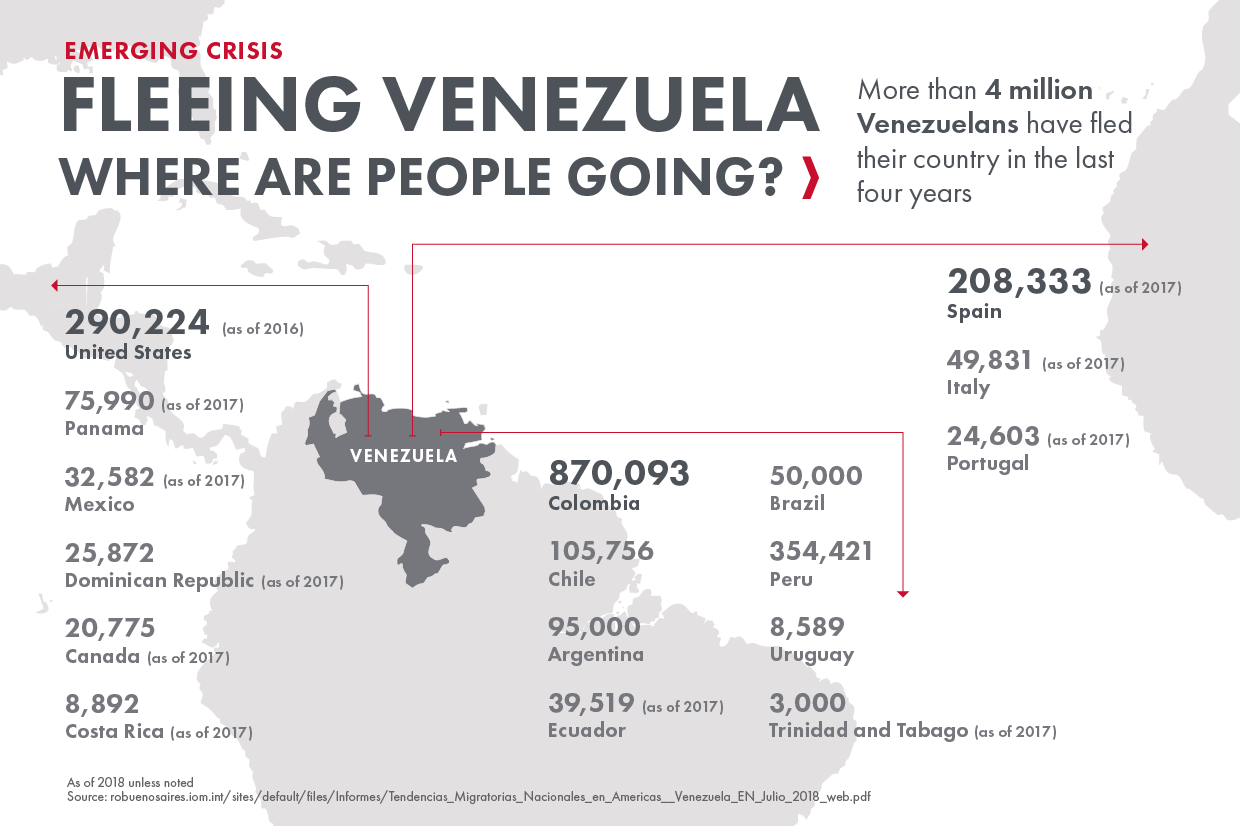
The number of Venezuelans arriving in neighbouring countries has steadily increased in recent months. Venezuelans are fleeing their home country to neighbouring countries including Colombia and Brazil, and to others in the region such as Peru, Panama and Ecuador, as well as islands in the south Caribbean.
Colombia is currently hosting the largest number of Venezuelans — more than 1 million — through official and unofficial entry points along its 1,300-mile border with Venezuela. Thousands of people are crossing daily to Colombia to meet their basic needs.
Others continue their journey to join family in other areas of Colombia or the region, or go back to Venezuela after attempting to restock supplies of medicine, food and other essential items they can no longer get in Venezuela.
“Tens of thousands of people are leaving their families behind out of desperation, just on the hope of a shred of opportunity in Colombia,” says Provash Budden, Americas regional director for Mercy Corps.
Those fleeing Venezuela include Venezuelans, Colombians who have been living in Venezuela as refugees and people of mixed Colombian-Venezuelan heritage.
How have Venezuelans’ lives changed?
Many of the people who have fled once held good jobs in Venezuela. They were lawyers, business owners, doctors and nurses, government staff and university students.
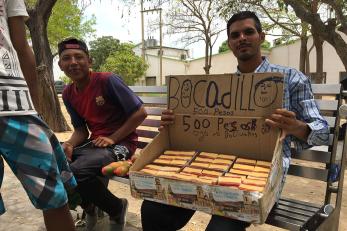
Now, in Colombia and elsewhere, they have to resort to selling services (for example, doing manicures or washing windows) or small items like candy, bread and coffee on the street just to feed themselves and their children, or to be able to pay for a safe place to sleep at night.
Colombia has suspended temporary visas, so most Venezuelans arriving today can’t get legal work, leaving them vulnerable to exploitation.
In some areas, there are a few temporary housing options, but there aren’t nearly enough beds. Most people sleep on the beach, in parks or in other public areas. If they make enough money through informal jobs or selling goods on the street, they rent hammocks in private yards or spaces on the floor in private homes.
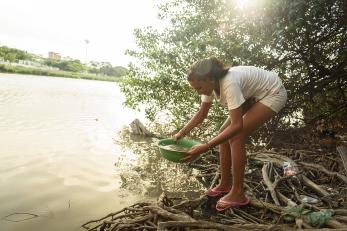
“There are some very good people who are so kind to us and there are people who yell at us and are mad at us for even being here or talking to them,” says one woman who fled Venezuela. “It’s not our fault what is happening to us. We are all humans. We just wanted to be treated with dignity.”
What are Venezuelans doing to survive?
Many people arrive with little more than the clothes on their back after walking for hours on dangerous routes plagued by robberies and violence. By the time they arrive, they have been robbed or extorted of most, if not all, of their money and personal items.
When people arrive in Colombia, they often beg until they have enough money to buy coffee, bread, candies or other small items they can sell on the street. They are lucky if they earn between $2 and $5 a day, which they use to scrape by or to send back to Venezuela. For those who do get informal jobs, they are subject to low pay, long hours and exploitation.
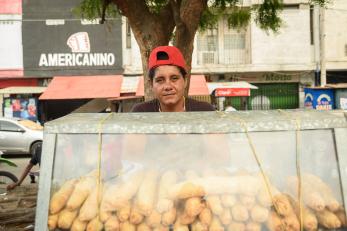
One Venezuelan woman Mercy Corps interviewed last March, who was previously a working college graduate and now is trying to sell enough coffee on the street to feed her three-year-old daughter, says, “We can’t eat there. We can’t eat here. I don’t know what to do anymore.”
Many Venezuelans arriving are young women at high risk of exploitation, harassment and sexual violence, as well as recruitment into drug trafficking and other armed groups. Often they are traveling alone with small children, and some women have resorted to sex work for survival and to feed their children.
What’s been the impact of this migration on Colombia?
Venezuelan migration into Colombia is putting pressure on Colombia’s already-stretched capacity to respond as the country faces its own internal crises.
Economic opportunities for Colombians where migrants settle are already scarce. The growing competition for jobs and resources is exacerbating numerous challenges their communities are already facing.
Tensions are rising as Colombians see Venezuelans taking jobs at a lower wage than legally allowed in Colombia, which is also an exploitative wage for the Venezuelans. They also see Venezuelans undercutting their own businesses by selling items brought from Venezuela at a much lower cost than possible for Colombian businesses.
At the same time, more than 7 million Colombians — second in the world after Syria — remain internally displaced after decades of armed conflict. Many are marginalised, rural, indigenous and Afro-Colombians, unable to meet even their most basic needs.
What is Mercy Corps doing to help?
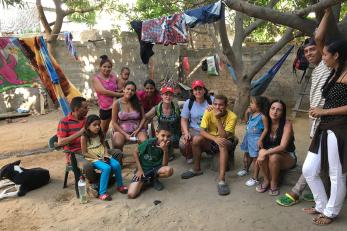
Mercy Corps has expanded its existing aid operations in Colombia to meet the urgent needs of Venezuelan refugees and Colombians affected by Venezuelan migrations. We've already helped more than 13,000 people since last year.
We are providing emergency cash via pre-paid debit cards to help approximately 8,000 people in 10 municipalities in Cesar and La Guajira departments, including the cities of Riohacha, Maicao and Valledupar. This includes Venezuelan migrants and refugees, returning Colombians and host community Colombians affected by Venezuelan migration.
Between June and September 2018, we helped more than 3,000 Venezuelans get medicine by paying for prescriptions at local pharmacies in Riohacha, La Guajira. For hospital inpatients, in addition to paying for prescriptions we provided items such as diapers and hygiene supplies.
"Many Venezuelans arriving in Colombia are going from eating bread with coffee once every two days when they arrive to eating a plate of beans and rice once a day," says Budden. "That’s still not enough. And they also have to buy water to drink, which is critical in a hot and humid climate like in Cesar and La Guajira. So even though they are hungry they are using what little money they do have on water and shelter, not food."
In Putumayo, Cauca and Antioquia, where we already work to help vulnerable Colombians displaced by armed conflict meet their urgent needs, we are also providing emergency cash to help Venezuelan families living there. We’ve already assisted more than 1,700 Venezuelans across these three departments.
We’ve also partnered with NetHope and other responding organisations to import and install WiFi connectivity at places like shelters, migration and feeding centres, and educational facilities.
Mercy Corps has worked in Colombia since 2005. In mid-March 2018, our team conducted an assessment in the Cesar and La Guajira departments, along the northern border with Venezuela.
The assessment intended to understand the needs of those who have crossed over and the communities hosting them; the capacity of the Colombian government and other local and international organisations to respond; and how Mercy Corps might be able to add value and fill gaps in the current response.
During Mercy Corps’ assessment people said that they need four things above all else: legal status in Colombia, jobs, healthcare and food.
“We did not come here to be parasites,” says one Venezuelan migrant in Riohacha. “All we want is to be given the same rights and protections as Colombians. We want to work, but with dignity.”
Advocating for the human rights of Venezuelan refugees
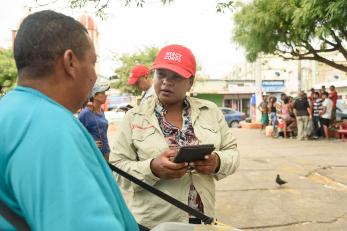
We must focus on protecting Venezuelan refugees and migrants, who are incredibly vulnerable, especially women and children.
This protection should include strengthening national asylum systems and supporting access to other legal stay arrangements. It also means providing access to the right to work, healthcare and other basic services.
Without these things, Venezuelan families living in the region are at risk of exploitation. They might also resort to negative coping strategies in the face of challenges like lack of legal protection, job opportunities and basic necessities.
Increased engagement and information sharing with Colombian communities and other host communities in the region will also help create awareness of the plight of Venezuelans, foster community acceptance and prevent xenophobia.
We support ongoing international diplomatic efforts to turn the tide against massive human suffering in Venezuela. In addition to supporting free and fair elections for Venezuelans, we hope that these efforts will result in increased lifesaving humanitarian assistance.
What other help is needed
The crisis in Venezuela is not expected to end anytime soon. As it continues, regional and national governments, as well as international and local organisations responding to this crisis, need funding and coordinated response efforts.
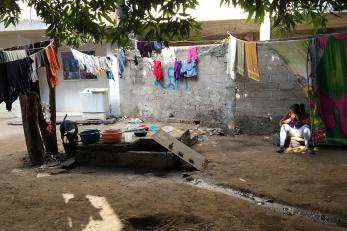
We commend efforts to date to meet the needs of Venezuelans fleeing to Brazil, Colombia and elsewhere, but more remains to be done.
“Regional governments and international and local organisations responding to this crisis need funding and a co-ordinated response to continue meeting urgent needs and scale up in preparation for a continued exodus from Venezuela,” says Budden.
Since Fiscal Year 2017, the United States has provided more than $140 million in humanitarian and development assistance to support affected countries’ emergency efforts and build their long-term capacity to host the more than three million people.
Colombia and other countries in the region are also using their resources. Unfortunately, the level of needs continues to outpace the available funding and aid.
Recognising that the United States and other countries in the region cannot meet these needs alone, we support increasing diplomatic engagement with partners in the region and around the world to shore up additional funding and to support a coordinated regional refugee response.
We must do whatever we can to ensure the safety and security of Venezuelan refugees and prepare for many more families to arrive in the coming months.
How can I help Venezuelans?
As the situation worsens, we are committed to helping vulnerable Venezuelan refugees who are unsure of what the future holds. Our response is only just beginning.
Your help will allow us to do even more to support these families as they cope with the tragedy of losing their homes and livelihoods.
